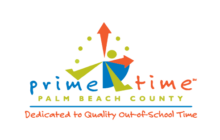9:00 am - 12:00 pm
Over the last 5 years, Prime Time has helped the JASE program become a successful afterschool program in Martin County. We are thankful for the variety of trainings offered, yearly actions plans and multiple site visits.
Afterschool ProfessionalMartin County Parks and Recreation
Reframing Behavior Management Series Part 1 – VIRTUAL
Participants are REQUIRED TO ATTEND ALL TRAININGS in the series and complete assignments in between trainings.
By registering for this training, you are committing to all training session dates.
Part 1 – Mistaken Beliefs
Part 2 – Youth Responsibility
Do you struggle with managing challenging behaviors of the youth in your program? Would you like to learn a way to facilitate youths’ self-management skills when they misbehave? In this Behavior Management series participants will learn how to reframe all youth behavior as opportunities for youth to learn responsibility, emotion management and problem-solving skills.
In the Part 2 training session, participants will dive deeper into how youth have “Mistaken Beliefs” when they are acting out. You will have an opportunity to practice activities and strategies that help youth improve their communication, responsibility, problem-solving and empathy skills. You will leave this training with a “toolkit” of easy-to-use activities and strategies to improve youth behavior.
Upon successful completion of this training series and follow up assignment(s), the participant will earn 8 clock hours (.8 CEUs) of training.
Mistaken Beliefs – Part 1
Training Objectives:
Participants will:
- Identify how youths’ challenging behaviors relate to skills they need to learn.
- Describe youths’ needs for belonging and significance.
- Determine the “mistaken belief” underneath youths’ negative behavior.
Youth Responsibility – Part 2
Training Objectives:
Participants will:
- Compare natural/logical consequences to punishment.
- Apply the authoritative/encouraging style of discipline through role-play.
- Employ strategies for responding to behavior that will increase youth responsibility and teach important life skills.
Core Knowledge, Skills and Competencies Addressed (CKSCs):
Learning Environments and Curriculum
Physical, Social/Emotional, and Cognitive Development
Apply – G. Supports children and youth in developing a sense of self.
Language and Communication Development
Identify – A. Understands active listening.
Apply – D. Adapts language and communication activities and interactions to support diverse needs and abilities.
Relationships and Interaction with Children/Youth
Individual Child/Youth Guidance
Identify – A. Understands behavior is a type of communication – a way to express or exchange ideas, thoughts, or feelings with others.
Primary QIS Scales Addressed:
I. Safe Environment
I-E. Creating Safe Spaces
I-E-4. Staff group management style is characterized by proactive or positive approaches.
II. Supportive Environment
II-G. Emotion Coaching
II-G-2. Staff asks all young people to name or describe their emotions or identify the intensity of their emotions.

